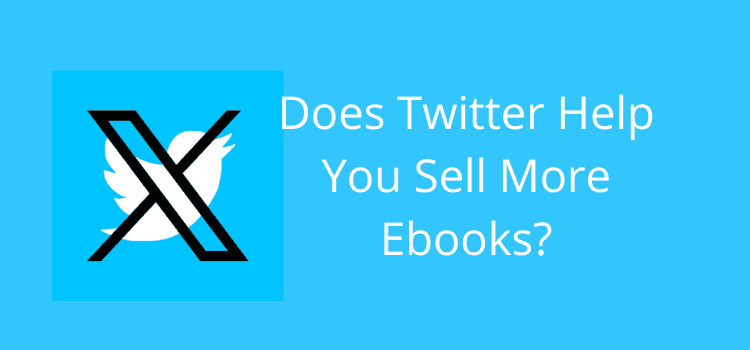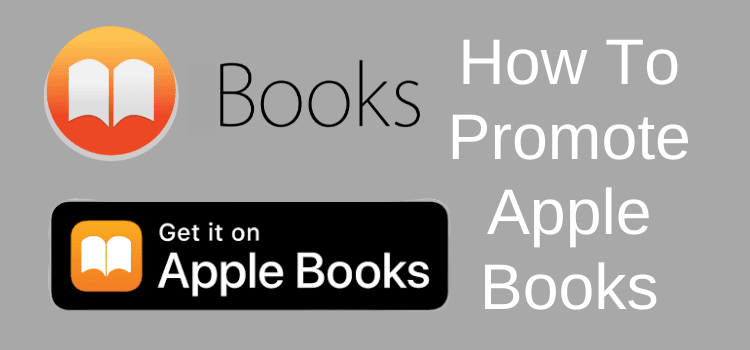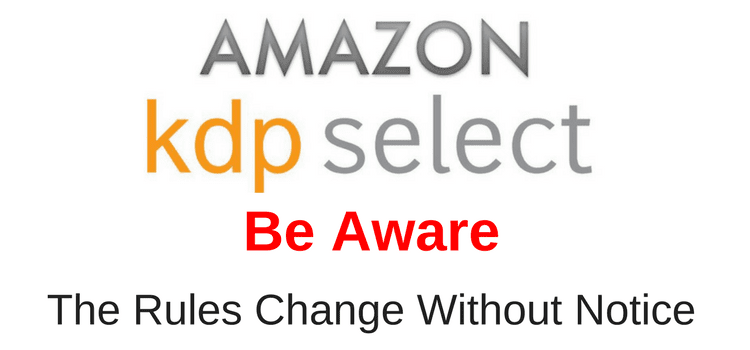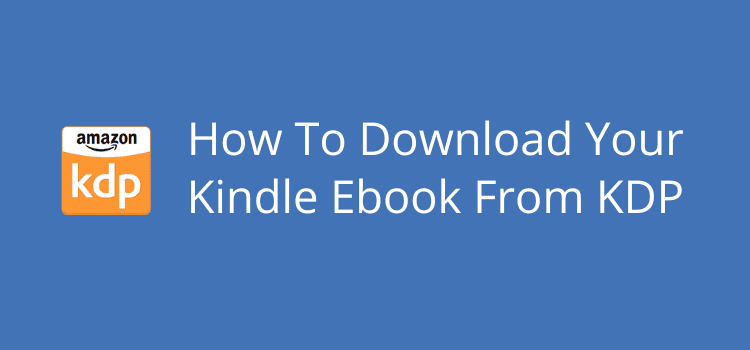
X (formerly Twitter) is excellent for author promotion, but does Twitter sell ebooks?
It has become the go-to social media platform for self-published authors for many years.
Perhaps this happened because both self-publishing and Twitter launched at roughly the same time. Although it has changed its name to X, I’ll use Twitter in this article, as referring to something as X annoys me.
Anyway, maybe the immediacy and ability to promote a product on Twitter quite blatantly makes it so attractive to authors.
X (Twitter) book promotion
Twitter is a better fit than some other social networking platforms for authors.
There are very few constraints, and you don’t need to pay to promote a product.
It has definitely become one of the essential platforms for self-published authors.
But is Twitter marketing effective in delivering what authors want?
Book sales.
Does it help you to sell ebooks?
I can only speak from my own experience.
I have a substantial Twitter following and use Analytics and Google Analytics to collect data.
These give me access to a reasonable amount of data from my marketing campaigns to correlate against my book sales.
So, let’s look at some data.
Measuring a Twitter marketing strategy
The image below is an overview of my Twitter account for 28 days.
The critical number is the profile visits.
These are visits to my Twitter profile page from a Tweet.
17,000 is a good number, of course, but how many then click the link to my website?

For the same period, here are the statistics for my site visits from Google Analytics for my author website.
Twitter (t.co) referrals are leading the way for sessions and new users.
This is an excellent conversion and says a lot about the power of Twitter for promotion, especially for bloggers.

Book buy links
But what about a single book promotion Tweet?
Do people click on the book buy links?

This is where promotion is one thing, and book sales conversions are another.
Only three Twitter users clicked through to my book on Amazon.
But 4,435 people saw the tweet, and 43 people engaged with it.
But it is a very low and disappointing conversion rate.
It is no surprise that I did not sell one copy of this book on the day of this tweet.
But three people did go to my book page on Amazon. So it had a small positive result.
My book sales have remained steady.
But I have never seen a correlating jump in book sales when I increase the number of my book tweets.
I have tried this experiment many, many times.
I believe that book tweets can still be helpful as a means of building awareness. But think of them like roadside billboards.
No one rushes off to buy a product when they drive past one, but they help build product awareness. People remember.
So, from this logic, keep in mind that tweets with images (book covers) attract more than ten times the engagement of text tweets.
It can help to reinforce awareness and may convert the next time a potential book buyer readies to make a purchase.
What does this sample of Twitter data prove?
It proves that Twitter is a fantastic promotional platform.
It is very effective in attracting people to information, such as blogs and articles, and creating awareness of your books.
But it is, like most social media platforms, not great as a means of direct selling.
Use it to promote yourself as an author and encourage people to interact and get to know you.
But as far as selling books to strangers is concerned?
No. It doesn’t work well at all.
However, for building awareness and product recognition, it’s a winner.
In the long term, Twitter should positively affect your book sales as long as you are patient and don’t expect instant results.
Related Reading: What You Need To Do Before You Self-Publish A Book
Share This Article



This is EXACTLY the information I’ve been looking for. Thank you! You are a much-needed guide in the wilderness. Been tearing my hair out for a week trying to unravel this Gordian Knot!
Spot on! I’ve used Twitter on several of my books, and while I don’t have the analytics you used on your book, I’ve never seen an uptick in sales after a flurry of tweets, either from me or purchased from a so-called promoter. I agree that it’s probably good for author/book awareness but that’s about it. I use my latest novel as my pinned tweet and that’s as far as I’m going with it since people checking out my profile will see it. Furthermore, Twitter, to me at least, seems more like a political/opinion platform with few folks going there to discover books. Thanks again for your timely post.
I agree with this article. Twitter really doesn’t help with book sales, but I can say that it has helped in getting traffic over to my blog: “The Struggling Indie Author”.
Yes. Second to Google Search, Twitter is the next best traffic driver.
I’ve been on twitter for about a month and this comes as no surprise. I agree that as long as it’s used with a light touch it may go some way to promote a modicum of ‘brand awareness’, but the usefulness of that is not measurable. I suspect any benefit from that down the line is likely dependent on luck, or rather happenstance.
I continue to use it for other reasons. First, I’m told to by experts, and I’d be an idiot not to do everything I’m told at my stage in the game — I can ignore the experts when all has failed. Apart from all the spam and bull, I have picked up a lot of insights and tips from it about publishing and the publishing world. As an isolated writer, it also gives me some level of interaction with other writers and people who enjoy reading fiction, which is better than none. It also can come up with some interesting info or news relating to other arts besides writing.
On the whole, though, I’ve found it an extremely depressing load of crap, and I’ve doubted its use as a promotional device from day one.
One thing I’m sure of: the way it’s used by publishers and agents, by and large, can’t be doing them many favours. It’s mostly spamming and banality, too often with a little whiff of privilege and smugness. They are both compelled and constrained professionally, though, so I can’t blame them. It just doesn’t come across very well.
Mind you, I haven’t the foggiest how to come across well myself, so I can’t talk. Most of my energy on twitter is spent repressing drunken rants. I think more of those by everyone would make twitter much more interesting, and sales wouldn’t suffer because we’ve established twitter doesn’t effect them anyway. So, chin-chin.
It’s wise to keep a balanced view about the usefulness of Twitter. In today’s book market, it is only one small piece of the puzzle. But used well, it can be (somewhat) beneficial. And yes, chin-chin!
I’ve given up on twitter and don’t normally post directly to it, just via my facebook feed.
Indeed today was probably the first time I looked at my twitter feed for some weeks because it is just people flogging books I’m never going to buy, and which I’ve seen sold elsewhere.
One caveat here, lack of mobile phone signal means I only ever connect to the web through a desk-top machine so even if I look daily there’s thousands of meaningless messages scrolling banally past
The only way to make sense of Twitter, Jim, is to use lists. When you create a list of only those Twitter accounts that interest you, your list’s stream is clean and informative. I have a lot of lists, and with each one, I can get information that interests me on certain topics.
That’s the problem, there’s very little posted on twitter that I actually want to read. Not in a mere hundred and forty whatever characters.
I have my account set up so if anybody ever contacts me, I get an email and can respond, which doesn’t happen every month.
Interestingly I purged the list of people I follow, I realised I was being encouraged to follow people with the same interests, which as far as I could tell meant they wanted to sell books as well. I look at the people who keep signing on to follow me (gods alone know why) and they too have books to sell.
The only experiment I did to compare and contrast methods of communication was to look at hits on my blog. This is advertised on twitter, facebook, goodreads, linkedin etc etc.
Twitter was nowhere, I was getting more hits through search engines, which is one reason I gave up bothering too much about it
I think it can work if you’re the sort of person who is willing to spend a fair bit of time on it. One daughter rather lives on her phone and is constantly tweeting stuff, some of it quite funny, that happens to her. But her comment was that she never, under any circumstances, tries to sell because it just drives people away.
Being informative always works well on Twitter, Jim. I just got a nice thank you ‘tweet’ for a tip I posted on my blog this morning. It’s only by ‘giving’ that sometimes you get something in return if people take an interest in what you have to say, and investigate further. And then discover that I write books. I get a lot of messages from people saying that they have followed my blog from Twitter, and have bought a book or two. But this usually happens after they have followed me for quite some time.
Ouch, Ace.
Lesson learned, Derek. I’ll include my book cover in my tweets, and expand who I follow. I thought following authors was beneficial.
Thanks Derek.
It always depends on how you look at things, Mary. For an author, following authors may seem unproductive, but then again, authors usually do buy books and read. This can’t necessarily be said for Joe the plumber, or Sue the SEO expert.
Full disclosure: I am a writer, but not a self-published writer. And while I am open to buying the occasional self-published book (though so far maybe 5 percent of the ones I’ve tried to read were even competent, never mind “good”), in my case, I refuse to buy anyone’s self-published book that’s being shilled on Twitter. Self-pubbers are ruining Twitter like overbearing networkers at a cocktail party. Because my bio says I’m a writer, a good 80 percent of the people who “follow” me immediately declare that they are “authors” and then post nonstop about their Kindle ebooks. You would think the entirety of Twitter is comprised of aspiring writers. Maybe if authors spent half the time improving their writing that they waste trying to create a “platform,” self-published books wouldn’t be so abyssmal. Hell, maybe some of those writers could get real publishing deals.
While I agree with you, Ace, in that Twitter is a bit of a book swamp, there are two points that should be considered. One is that Twitter’s algorithms encourage following based on common interests, so naturally, this results in the crazy situation of authors following authors, which of course is not tremendously productive. The second point is that traditional publishers and literary agents are just as active on Twitter. I started collecting a list of literary agents, and stopped bothering after 200 or so. Also, traditional publishers have a huge number of accounts. Take Simon & Schuster for example. They have at least 20 Twitter accounts! Then there are the authors who are instructed by their agents to add their publisher and agent’s name to their Twitter bios. So I have to say that self publishers shouldn’t get all the blame for making Twitter a book swamp. Traditional publishers and literary are just as guilty, because they insist on their authors being active on Twitter and other social media platforms. So getting a real publishing deal doesn’t change much for authors.
Many traditionally published books are also not very good. To state that most self published books are less than perfect and not worth the time suggests a closed mind. I have published books both ways and my experience has been that if you use a publisher it takes a long time to get a book out. Not to mention that the royalties are less than a writer can receive through self publishing. We are now dealing with a paradigm shift, suggesting that indies will become much more competitive and accepted by the marketplace. Things eventually will sort themselves out. Bad books will fade away and the better books will continue to sell.
I agree, Andres. The reading market will decide, and isn’t that how it really should be?
Nice post Derek, but I still think people search solely for what they are interested in. My experience as an author with twitter since 2009 has shown me that twitter doesn’t equal book sales. It only raises curiosity about what it is you do. A few follows here, some mentions in tweets there and maybe, just maybe some of your followers will retweet your post about your latest book. Truth is, more people simply like to say they are followed by an author on twitter than will have actually read their book. Still, we’ve come a long way on twitter since the early days of just shoving the deer in front of the headlights and saying, “here, buy my book!”
You’re 100% correct, Phillip. We have all come a long way since 2009. I put a lot of effort into book metadata now to help readers find my books, which is very effective. Twitter still has its uses though, especially for free ebook promos. While it’s true to say Twitter doesn’t sell books, I think it does help in creating brand recognition over time and is a wonderful platform to build a blog audience.